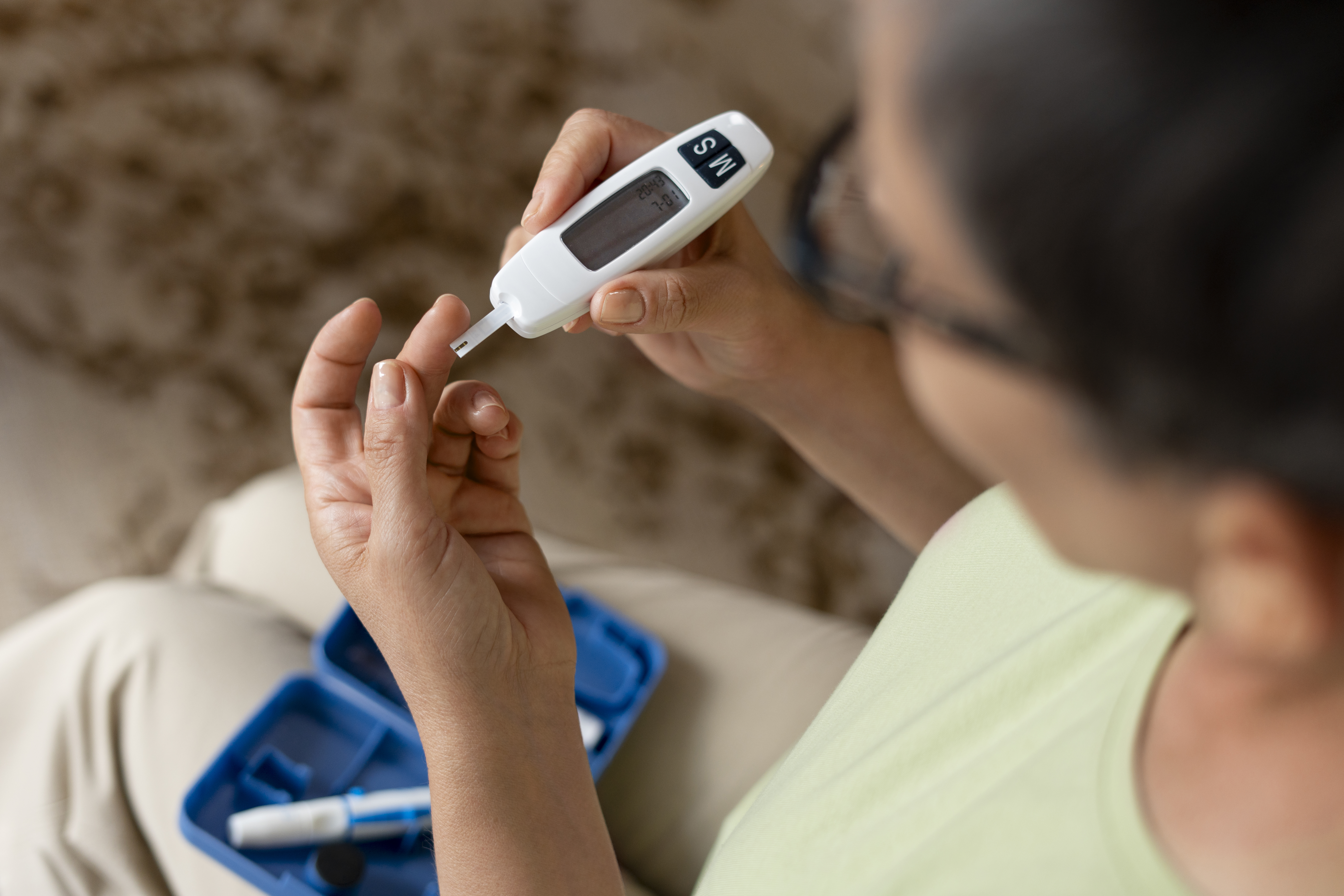Introduction
Diabetes is a significant medical illness that affects millions of individuals globally. Even many kids under the age of 10 are now being treated for diabetes on a global scale. While it can be treated with medication, avoiding diabetes remains the best option. Diabetes monitoring is critical since it allows you to identify chances of increased risks. The good news is that Type 2 diabetes, the most common type, is usually avoidable with low but effective lifestyle adjustments. Healthy habits will significantly decrease your risk of diabetes while improving your general health.
Diabetes and its risk factors
Diabetes is a disorder in which the body either produces insufficient insulin or cannot use it properly, which results in high glucose levels. The two major types of diabetes found in people are Type 1 and Type 2. Type 1 diabetes is an autoimmune sickness that cannot be avoided, whereas type 2 diabetes is caused by lifestyle choices and genetics.
Several risk factors raise the possibility of getting diabetes, including:
● Being overweight or obese.
● Insufficient Physical Activity.
● Unhealthy food choices.
● Family history of diabetes.
● High cholesterol and blood pressure levels.
● Smoking.
Diabetes can be delayed or avoided if these risk factors are addressed through good lifestyle choices.
Preventing diabetes with healthy habits
1. Follow a nutritious diet
One of the best ways to prevent diabetes is to eat a healthy diet. Consuming complete, natural foods can help manage blood sugar levels and also monitor diabetes. Here’s what you need to put into your diet:
● High-fiber foods, such as grains, vegetables, lentils, and fruits, can help increase insulin sensitivity.
● Lean proteins such as chicken, fish, tofu, and beans help you feel fuller for a longer period and minimize unhealthy appetites.
● Healthy fats found in fruit, nuts, and olive oil help to maintain heart health and regulate blood sugar levels.
● Sugary refreshments, processed carbohydrates, and fast meals can all raise blood sugar levels and lead to weight gain. These must be avoided.
Adopting good eating habits is an important step in diabetes services for treatment to prevent complications and maintain your general health.
2. Staying physically active
Regular exercise is important for diabetes prevention as it allows the body to use insulin properly. Aim to do at least 150 minutes of physical activity per week. Activities such as walking, swimming, bicycling, and lifting weights can help with blood sugar control and weight management. If you lead an idle life, make little changes such as taking the stairs instead of the elevator, going for brief walks after meals, or stretching during work breaks. Even a little physical activity can help avoid diabetes.
3. Keeping an eye on your blood sugar levels
Diabetes monitoring is essential for early detection and prevention of diabetes. Even if you do not have diabetes, monitoring your blood sugar levels regularly might help you recognize future problems. If you have a family history of diabetes or other warning signs, arrange regular health screenings to monitor your glucose levels.
Early detection enables you to make the required lifestyle modifications before diabetes develops. Your doctor might suggest proper diabetes management services to help you remain on schedule.
4. Stay at a healthy weight
Excess weight, particularly around the abdomen, increases the probability of developing diabetes. You can significantly lower your chance of developing diabetes by losing just 5–10% of your excess body weight.
To reach and maintain a healthy weight:
● Eat a balanced diet.
● Exercise regularly.
● Get enough sleep.
● Remain hydrated.
One of the best strategies for diabetes monitoring and improving general health is to maintain a healthy body weight.
5. Managing stress
Chronic stress can cause hormonal problems, which impact blood sugar levels. To prevent diabetes, it is essential to learn suitable stress management techniques. Some effective stress prevention approaches are:
● Meditation and extended breathing.
● Engaging in activities.
● Exercise regularly.
● Spending time with your loved ones
● Getting enough sleep.
When stress levels are properly controlled, it is simpler to stick to good routines that reduce the risk of diabetes.
6. Get enough sleep
Sleep deprivation has been associated with insulin resistance and an increased risk of Type 2 diabetes. Every night, you need to sleep for at least seven to eight hours. Maintaining a consistent sleep schedule, minimizing screen time before bed, and developing a comfortable bedtime practice can help improve your sleep quality.
Conclusion
Preventing diabetes involves regular effort, but the rewards are certainly worth it. You may significantly reduce your chance of having diabetes by eating a nutritious diet, exercising regularly, checking your blood pressure, managing stress, and frequent diabetes monitoring. If you require further assistance, consider using diabetes management services, which offer expert direction in maintaining a healthy lifestyle.
Texan Primary Care provides full medical treatments to help people avoid and control diabetes successfully. By taking preventive steps, you can live a healthier, diabetes-free lifestyle.
Frequently Asked Questions
Is it possible to prevent diabetes?
While Type 1 diabetes cannot be avoided, Type 2 diabetes can usually be postponed or avoided through living a healthy lifestyle that includes a correct diet, physical activity, and maintaining a healthy weight.
Does stress cause diabetes?
Yes, constant stress can cause hormonal imbalances, which modify blood sugar levels. Stress management and diabetes prevention are two benefits of relaxation techniques.
If I am at risk for diabetes, how often should I get my blood sugar checked?
You must monitor your blood sugar levels at least once a year, or as recommended by your doctor, especially if you have signs of diabetes.
If I don’t have any symptoms, do I still need to have my diabetes monitored?
Yes, diabetes can develop silently, with no obvious signs. Early detection and the avoidance of diabetes depend on health examinations and diabetes monitoring.
How might diabetes management services help me avoid diabetes?
Diabetes management services provide specific guidance, lifestyle changes, and frequent health check-ups that help people maintain good health and avoid diabetes.




